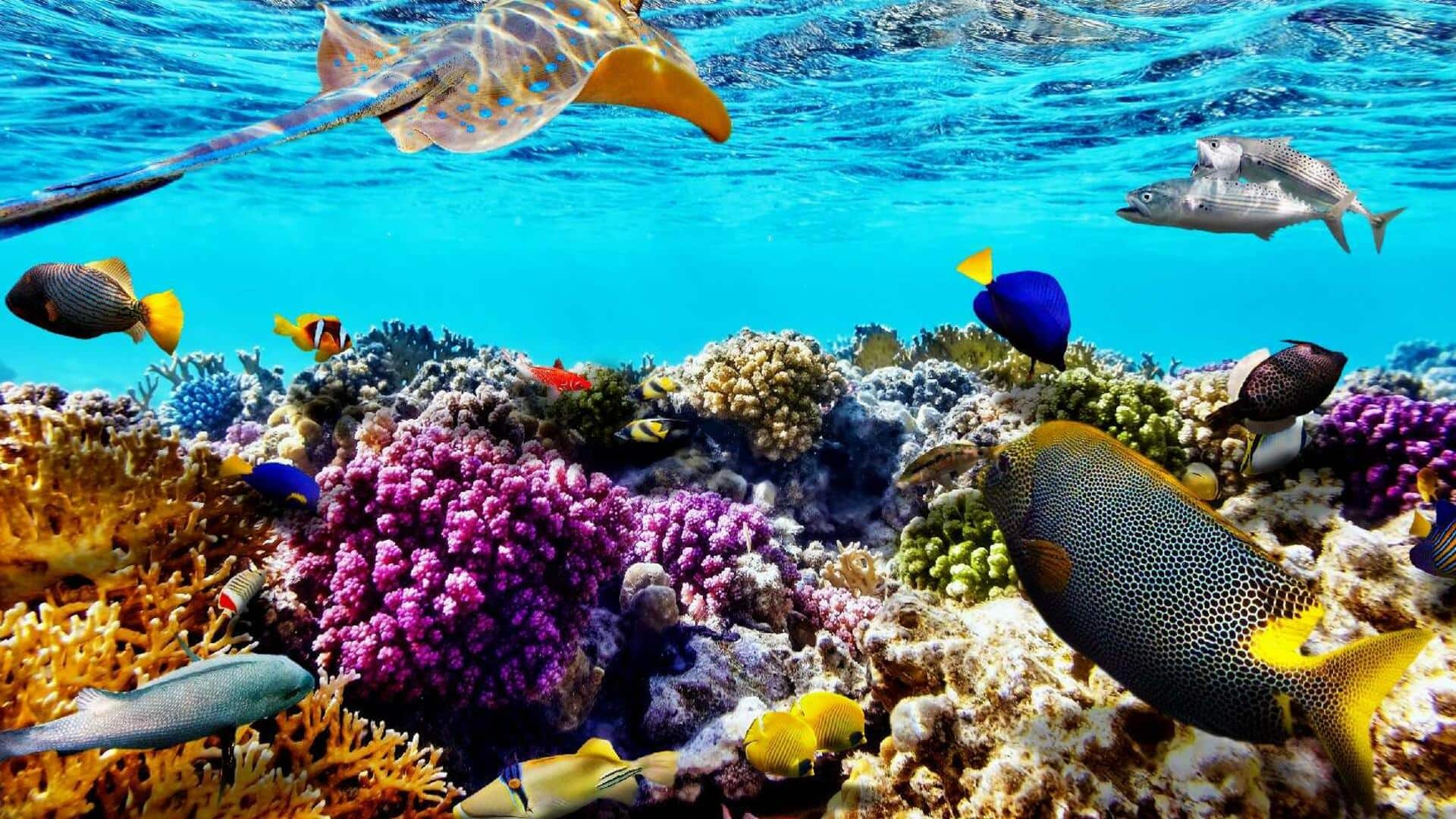
Great Barrier Reef recoverable if global warming stays below 2°C
What's the story
Australia's Great Barrier Reef, one of the world's most biodiverse ecosystems, is facing a "grim future" with a "rapid coral decline" by 2050, according to a new study. However, parts of the reef could recover if global warming is kept below 2°C. The study, by researchers at the University of Queensland (UQ), used modeling to simulate the lifecycles of certain coral species, finding that some are better at adapting to warmer oceans and could help new coral grow.
Coral dynamics
Reefs near cooler-water currents more resilient
Dr. Yves-Marie Bozec, who led the research, said they modeled over 3,800 individual reefs to study their "eco-evolutionary dynamics." This included how corals deal with warmer water and corals in naturally cooler areas, discovering that the latter were more resilient. "We forecast a rapid coral decline before the middle of this century regardless of the emissions scenario," he said, stressing that curbing carbon emissions is crucial for recovery and avoiding a "near collapse" of the reef.
Climate impact
Great Barrier Reef has suffered 4 significant marine heatwaves
The Great Barrier Reef has suffered four significant marine heatwaves from 2016 to 2022. These heatwaves have caused widespread coral bleaching, a process where corals expel the algae that give them life and color. A recent report noted the largest annual decline in coral cover since records began nearly 40 years ago. The study's findings contradict a widely held belief that the reef's decline would become irreversible with global temperatures rising above 1.5°C.
Emission impact
Current global policies project about 2.8°C of warming
Currently, about 2.8°C warming is expected by the century's end, according to a UN report. Under these conditions, corals would face an "incredibly profound loss." The research was published in Nature Communications and considered how some corals can tolerate higher temperatures than others. If emissions continue at current levels, coral cover could drop to just 4% by the century's end. "Curbing emissions has to remain our number-one priority," Prof Peter Mumby, one of the lead authors of the research, said.